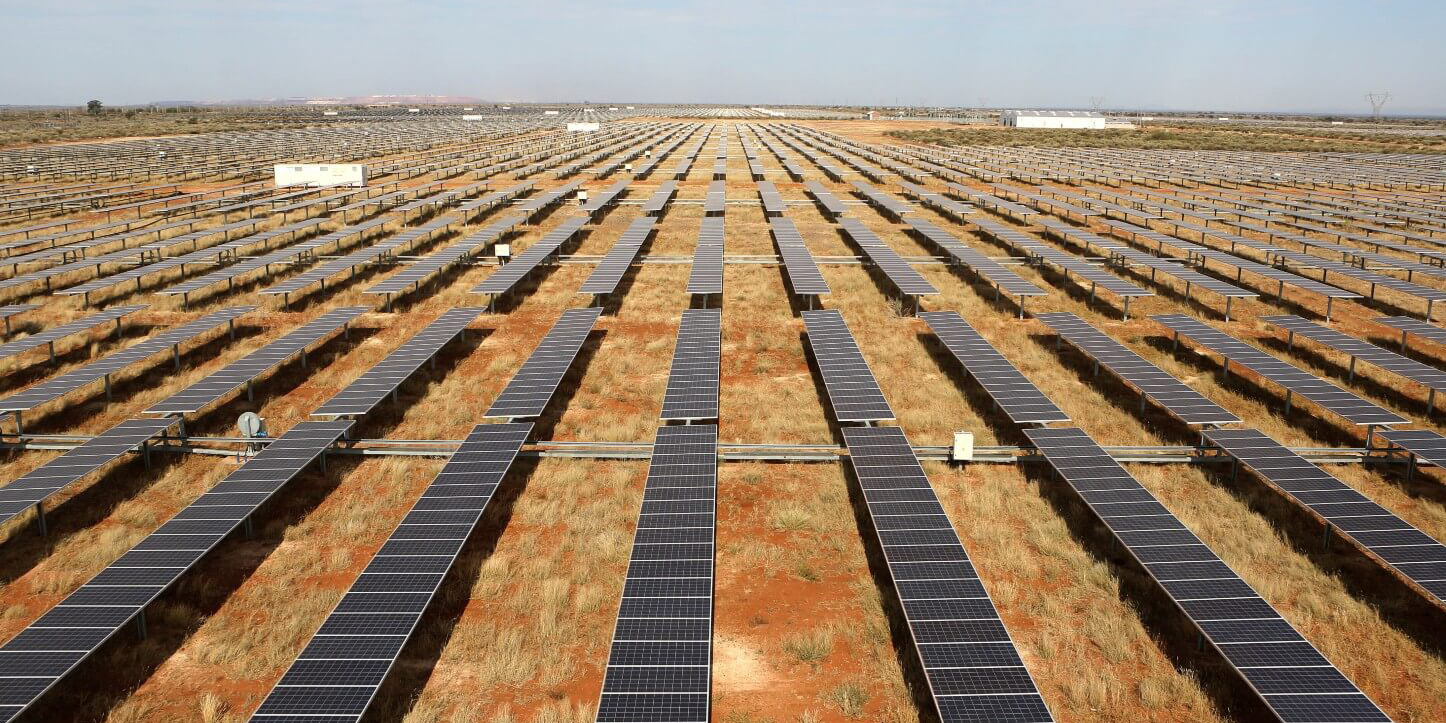- Australia
- Go to acciona.com
- The Australian community is already facing a hit with the cost-of-living crisis. A report published by the Parliament of Australia clearly states the spiking rates of goods and services by 23.4%.

It is important to understand that the type of energy you use can have an impact on your wallet. The spiking rates of non-renewable sources of electricity such as fuel and gas, provides us with the push we need to embrace renewable energy. Sustainable energy solutions not only help fight the impacts of climate change, but can help save a notable amount of money in the process.
Let's take a look at how we can mitigate the impacts of the rising cost of living.
Renewable energy to the rescue!
We know that fossil fuels are negatively impacting the environment, generating emissions that contribute to climate change and the respective issues connected to it. On the other hand, renewable infrastructure can help Australian residents obtain energy independence. People can save the amount they spend on rising electricity bills by making the climate-conscious choice of purchasing from renewable resources.
According to a report on large-scale energy generation by CSIRO and the Australian Energy Market Operator (AEMO), renewables such as wind and solar are the top low-cost sources of energy generation and storage in Australia! So, decarbonising the country’s energy system with the help of renewables as a low-emission power system is critically important.
Solar Panels
Australia is witnessing a growth in renewable infrastructure usage, and solar energy is one of the many alternatives to fossil fuels. There are almost 96 renewable energy projects under construction as of Jan 2023 with many being solar farms, says the resources of the Clean Energy Council, Australia. These large-scale projects are getting ready to feed cleaner and cheaper options to the electricity market in Australia. Even residential solar installations are up, with 30% of Australian homes having solar panels installed.
Some of the benefits associated with rooftop solar panels include:
- Zero Greenhouse Gas Emissions
- Feed-in-tariff
- Added Value to a Property
- Reduced Dependency on Fossil Fuels
- Decreased or No Electricity Bills
Electric Cars
Australia has witnessed a gradual spike in fuel rates over the past few years and the cost is likely to continue to rise.
This, coupled with increasing concerns about climate change, hitting the road with electric cars seems a better option. Consumers are becoming ever more environmentally conscious and are seeking out environmentally friendly options. On top of this, the Government of Western Australia Department of Transport has introduced the Zero Emission Vehicle Rebate Scheme to encourage the purchase of electric vehicles.
Electric Cars accounted for 5.6% of all auto sales in Q2 of 2022, up from 2.7% in Q2 2021. This number is set to explode with car manufacturers on track to release dozens of pure battery electric vehicles by the end of 2024.
Many manufacturers have goals to become as environmentally friendly as they can. Honda is aiming for all its sales to be zero emission electric cars by 2040 and are accomplishing this with partnerships and investments in electric vehicle research and development. Ford aims to produce more that 2 millions electric vehicles annually by 2026. And General Motors is aiming to have an all-electric model lineup by 2035.
All in all, even if the causes of a significant rise in utility prices are complex, renewable energy such as solar and battery can contribute to combating the costs.
Here are some of the ways that ACCIONA has supported the transition to electric vehicles.
ACCIONA partnered with Deakin University to build a solar car to compete in the Bridgestone World Solar Challenge this year. The bi-annual 3,000-kilometre race, to be held from 20-27 October 2023, has cars travel from Darwin to Adelaide across Australia’s remote outback and challenges university students to design, build and pilot a car powered exclusively from solar energy.
ACCIONA Energia has also supported electric vehicles in communities local to our projects. For example, In 2021, the company contributed to funding an electric vehicle charging station in Gunning, local to our Gunning Wind Farm. It is available for locals and visitors to recharge their cars while they visit the shops and cafes in the village and enjoy the historic townscape and welcoming atmosphere.
ACCIONA's contributions to renewable energy production
Being a global leader in the development, construction, operation and maintenance of renewable energy assets, with more than 30 years of experience in the sector, we have achieved:
- 24,541 GWH of energy produced in 2021
- 7.6M households consumption equivalent to renewable production
- 13.4M tonnes of CO₂ prevented
Looking at the demand for clean energy, ACCIONA Energía is continuously on a mission to introduce sustainable solutions and produce reliable and affordable clean energy to drive Australia’s shift towards a decarbonised future. By providing energy through renewable sources, we will green the electricity mix, which generates more affordable energy for all and drives down the rising cost of electricity.